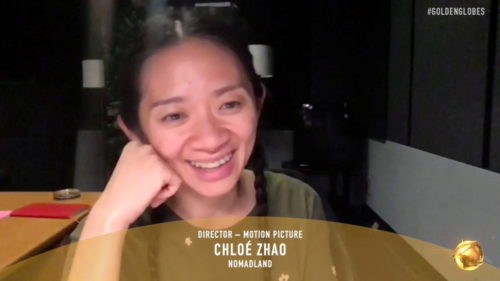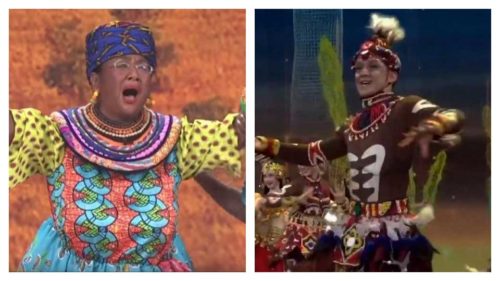Chinese people don’t need to be saved from their English names

Don’t assume that the cultural context of the West, and all the power relations and intentions implied by actions there, also apply the same way to students, friends, or colleagues in China.
Illustration by Anna Vignet

The first time I picked up a parcel from a convenience store after I moved to China, I was oddly touched to see my name scrawled across it in black permanent marker.
Finally, someone was actually using my name — in its most complex form, the Chinese characters, 陈婧璇, which are vivid and three-dimensional, unlike the romanized version — for its most banal purpose: identification.
You see, my name and I have a strange relationship.
As a Singaporean with a Chinese name who’s spent half my life living in places where most people don’t speak Chinese, many of my best friends address me by my initials. Introductions at parties are often hopelessly awkward, and emails with university administrators have taught me all the ways that “Jing Xuan” can be misspelled. To further complicate things, while I do speak some Chinese, English is the language I think in and make a living off of as a writer.
Two years ago, I got a job at a Chinese company, which means people have started using my full name a lot more. I feel a lot less estranged from it these days. But I’ve also frequently wondered — usually after an American expat I’ve just met at a networking event calls me “Chun Chun” — what life would’ve been like with an English name.
Which is why a recent op-ed in this very publication caught my eye:
Chinese people shouldn’t adopt English names, Rebeka Fergusson-Lutz argues. No one else in the world does this, it erases one’s identity, and doing so reinforces a “worldview steeped in racism,” she writes.
I think a lot about names. I also think a lot about what it means to be Chinese. So, please allow me to indulge in some pedantry of my own: here’s how not to talk to Chinese people about their names.
1. Don’t assume that Chinese people are adopting English names to gain Western approval.
This is especially important in the PRC, where — by some counts — there are approximately 300 million people learning English. The vast majority of people adopting English names for classroom use don’t interact with foreigners on a regular basis.
They aren’t wondering if the Starbucks barista will mangle their name, or if their nonexistent white European classmates and colleagues find them “unapproachable” because they have an “unpronounceable” Chinese name. And if they’re part of the Han majority, they don’t live in a country whose popular culture tells them they’ll always be strangers in their own society, as Asian Americans do.
Most likely, they’re doing it because their teacher asked them to, or it helps them get into the right mindset for English class, or because their classmates will laugh at how the foreign 25-year-old teaching them mispronounces their Chinese name. Or, for fun. I have mainland Chinese friends who’ve adopted multiple English names over the course of their school years, mostly selected on a whim or, as one of them put it, “based on whatever I thought was cool during that time.”
Don’t assume that the cultural context of the West, and all the power relations and intentions implied by actions there, also apply the same way to students, friends, or colleagues in China. If you’re looking at your Chinese students through the lens of, say, pro- or anti-Trump politics, you’ll miss an entire world of nuance and meaning.
Actually, it’s long been common for Chinese people to adopt multiple names — in Chinese — for different social settings. Personal names, courtesy names, and pseudonyms were all normal parts of people’s identities for a long time, and still are for many people. It’s common today to see famous Chinese writers continue to go by their noms de plume even though everyone knows their birth names — the point usually isn’t to conceal their “real” identity, it’s more an acknowledgment that we all have multiple identities that can coexist simultaneously.
Racist assumptions arising from Western — specifically, white — superiority, which Rebeka describes, certainly exist, and I don’t dispute their power as a motivation for many Chinese people to take on English names. But to ascribe that motivation to all or most people who do so would be unfairly simplistic.
Of course, it’s a different story altogether for people of Chinese descent who live in the West, or who live in societies where frequent exposure to Americanized, Anglophone culture is unavoidable. Which brings me to my next point…
2. Don’t assume that people who use English names to assimilate don’t know the worth of their own culture.
“I am who I am and what I am, no matter where I go,” Rebeka says. “Similarly, your essence remains unchanged, no matter where you live or study.”
I’m relieved she thinks Chinese people — or anyone named Fatima or Qingqing who wishes to become a U.S. or UK citizen — shouldn’t have to change themselves to fit in as immigrants.
But the sad truth is that the ability to walk through the world feeling like one unchanging, unfractured person without encountering psychological and physical harm is a rare privilege.
In Singapore, surrounded by Singaporeans, I enjoy this privilege as a member of the Chinese majority. People in positions of power don’t make dehumanizing assumptions about me based on my name and heritage. Stereotypes and jokes about Chinese people slide off me and are genuinely funny because I know they can’t hurt me, the way similar jokes could hurt Indian and Malay friends. I never feel that I have to attenuate some part of my identity, or fear seeming too Chinese, because I am the default human being in Singapore (almost, anyway — I would fully be, if I were a man).
In Europe, where I went to university, and among the international community that I’ve been part of in Japan and China, things feel different. There are big things: I learn to downplay my Chineseness when I have to fight to be recognized by people in power as a competent user of English. Then there are small things: I avert my eyes when I see a white person because I know there is a stereotype that Chinese people stare. Every tweet I read about how Chinese people are brainwashed, every joke about “gross” Asian foods, every yellow-fever pickup line stings more than I’m proud to admit.
It’s exhausting, and I start to think about what relief a Western-sounding name might bring. Would it make me more relatable? Would it give my resume an edge? Would it be a betrayal of the person my parents hoped I would become when they gave me my name? These are all very difficult — and personal — questions, and I don’t have the answers, even for myself. For other people, even less so.
My experience doesn’t even begin to plumb the depths of what someone who has spent their entire life as a minority in a racist society experiences. When you’re constantly made aware of how your own image of yourself measures up to other people’s prejudices, it would take superhuman strength not to adjust your behavior in some way to lessen the psychological burden. Adopting a name that sounds “normal” to most of the people in the society you live in can be one way to do that.
The most respectful way to treat someone’s Chinese name? Call them by the name they tell you to, whether English or Chinese. Respect their agency in defining their own identity. If you become their friend and earn their trust, you may one day learn what their parents call them.
3. Don’t assume that unusual English names are the result of insufficient knowledge.
Every expat who has taught English in China or worked in Hong Kong has a story about meeting Chinese people with unusual “English” names a British or American person would never give their kid. It usually involves the teller of the tale deciding whether to inform this clueless person of their gaffe.
I, too, am familiar with this genre. I humbly make the following contribution:
Legend has it that three Chinese sisters with the English names of Million, Billion, and Trillion once attended my school in Singapore, decades before I was a student there. Their parents were very interested in wealth, much less so in subtlety.
Unlike other characters of this genre, though, the parents, fluent in English, knew exactly what they were doing. And even if they didn’t, so what? They simply didn’t care about Western naming norms.
In parts of the world with large Chinese populations, like Hong Kong, Malaysia, or Singapore, many people have English names picked out for them by their parents, often for religious reasons. Our history of British colonization means there’s definitely a longheld view within our societies that what’s Western is better, and that whiteness is desirable. Resentment and resistance against this view have been around for just as long (my parents subscribed to the anti-English school of naming).
But a third path has also developed — we’ve collectively taken English names and made them our own. Empire foisted English on us, but now that we’ve learned to use it, we’re not giving it back.
If you’re an American, you’ll find more young Chinese people called “Aloysius” and “Charmaine” walking the streets of Singapore than you’d expect, this side of the 1950s. The names almost exclusively evoke a very particular type of Singaporean boy or girl when I hear them. And that’s nothing compared to the wonderful wackiness of names in Hong Kong, where everything from zodiac signs to Renaissance painters is an option.
It’s more a sign of linguistic exuberance than ignorance — do you really think the Malaysian singer Fish Leong doesn’t know what a fish is?
At the end of the day — Chinese people don’t need to be saved from their English names. Others just need to accept the subtleties and complexities of what names represent — and what they don’t.






